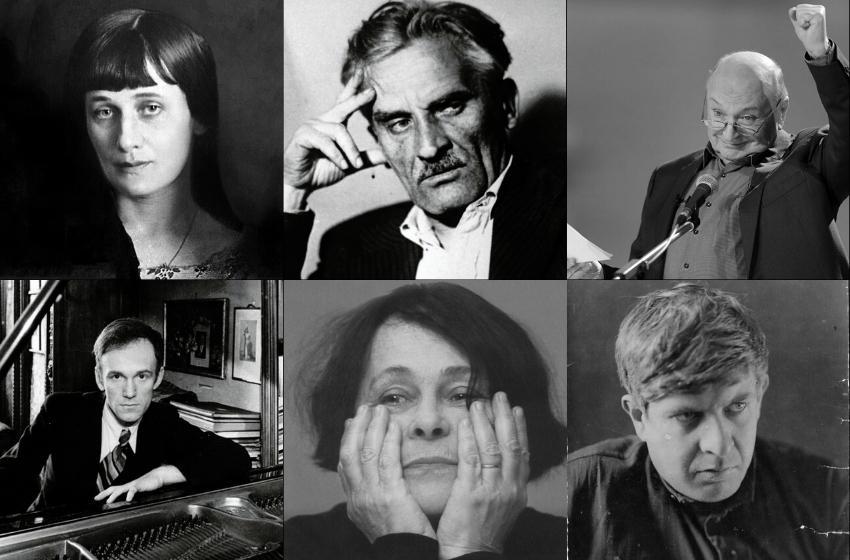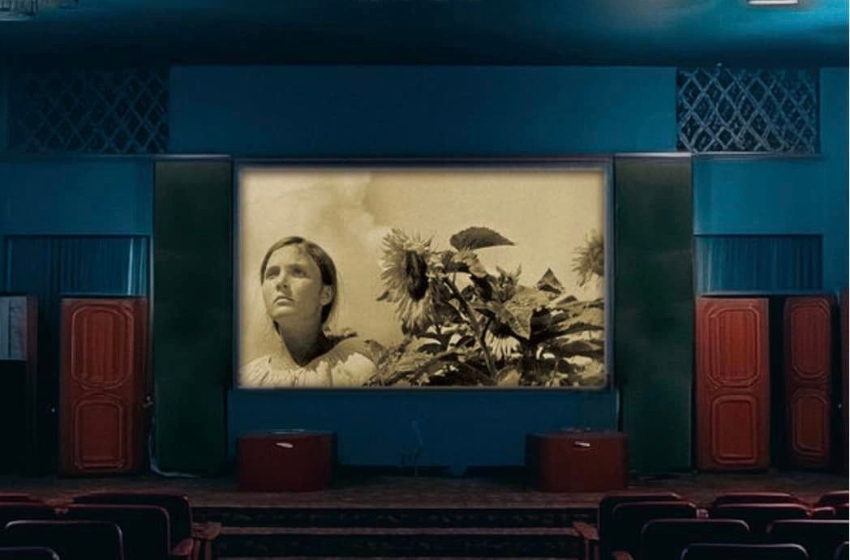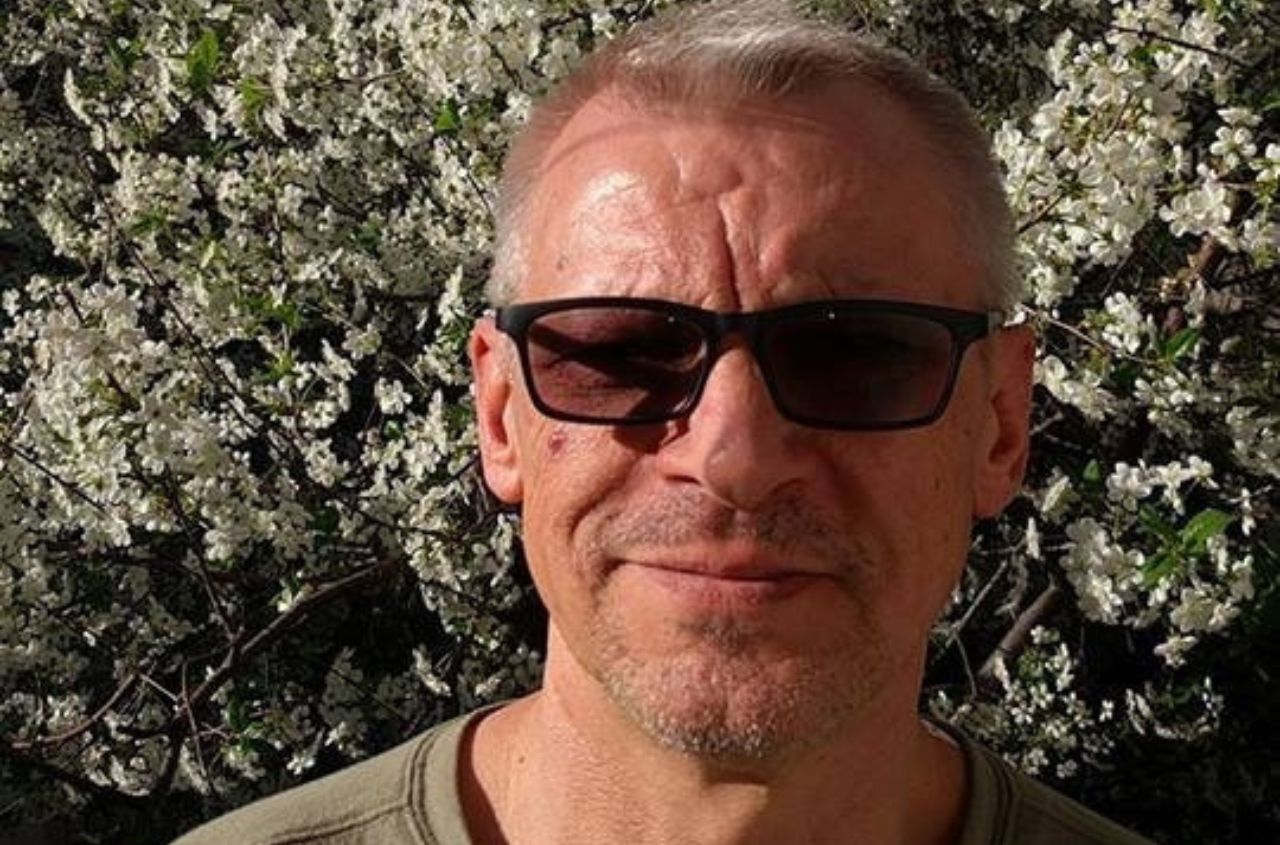The Odessa Walk of Fame stretches along Lanzheronovskaya Street, from the corner of Pushkinskaya to the Opera Theatre, perpetuating the memory of the people who glorified this city. The opening of the Walk of Fame was dedicated to the 220th anniversary of the city's founding. Every year this list grows.
Sviatoslav Richter
(1915-1997)


The brilliant musician, pianist Svyatoslav Teofilovich Richter was born on March 20, 1915. He was called the German piano philosopher in the circle of acquaintances and friends. He once objected that this was not entirely correct, since the Slavic influence of the mother was in harmony with the father's genetic German heritage.
Svyatoslav was born in Zhitomir, but soon, in 1916, the family moved to Odessa. His father was a teacher at the Odessa Conservatory and was the organist of the Evangelical Lutheran Church of St. Paul (Kirch).
At the age of 10 he played Chopin's nocturne. From 1930 to 1932, Richter worked as a pianist-accompanist at the Odessa House of the Sailor, then at the Philharmonic. Richter's first recital, composed by Chopin, took place in 1934. Soon he became an accompanist at the Odessa Opera House.
Svyatoslav Richter's concerts in the USA in 1960 became a real sensation, followed by recordings, many of which are still considered standard. In the same year, the musician was awarded the Grammy Award for his performance of Brahms' Second Piano Concerto. He became the first Soviet performer to receive this award.
Anna Akhmatova
(1889 - 1965)


Under the pseudonym “Anna Akhmatovaâ€, Anna Andreevna Gorenko entered the literature, becoming one of the great Russian poets of the twentieth century. She was born on 23.06.1889 in Odessa on the Big Fountain.
It was in Odessa in 1904 that she wrote her first poems, at the age of 15 she fell in love with the Odessa writer Alexander Fedorov.
The first publication of Akhmatova's poems was in 1907 in the Sirius magazine, published in Paris by Nikolai Gumilyov and Mstislav Farmakovsky from Odessa.
The recognition of Anna Akhmatova by readers and writers did not save her from constant persecution by the Bolsheviks. After 1922, neither new nor old of her poems were published for 15 years. Only in 1940 was the collection “From Six Books†published.
Anna Akhmatova was twice allowed to travel abroad - when receiving the Etna-Taormina Prize in Italy (1964) and an honorary doctorate from the University of Oxford (1965).
Eduard Bagritskiy
(1895-1934)


Eduard Bagritsky was born in Odessa on November 3, 1895, at 40 Bazarnaya Street.
Since childhood, he read a lot, was fond of not only poetry, but also biology, one of his favorite books is Brehm's Animal Life. He drew well, according to the recollections of classmates, most of the handwritten magazine at the school was filled with his poems, drawings and caricatures.
The first publication in the almanac "Chords" in 1914, the verses are signed "Desy" and "E.D." In the summer of 1914, at an evening of young poets, he performed for the first time under the pseudonym "Bagritsky".
Bagritsky participated in almost all literary associations: he spoke at “Wednesdays†in the Literary and Artistic Club, was a member of the “Student Literary and Artistic Circle†and the “Green Lamp†in 1917-1919. He easily improvised, impeccably mastered the poetic form - he could write a sonnet on a given topic in five minutes on a dare.
Bagritsky moved to Moscow in 1925, the last of the Odessa writers, he rented a room in Kuntsevo near Moscow. His poems instantly conquered Moscow. Bagritsky was also engaged in translations of Ukrainian, Belarusian, Tatar, Jewish, French, English, American, Turkish and Polish poets.
Kira Muratova
(1934 - 2018)


Kira Muratova was a Soviet-Ukrainian award-winning film director, screenwriter and actress of Romanian/Jewish descent, known for her unusual directorial style. Muratova's films underwent a great deal of censorship in the Soviet Union, yet still Muratova managed to emerge as one of the leading figures in contemporary Russian cinema and was able to build a very successful film career from 1960s onwards. Muratova is considered arguably Russia's lead filmmaker who weathered the collapse of the USSR yet managed to productively continue their filmmaking work from the early 1990s onward.
Kira Muratova made her debut as a film director at the Odessa Film Studio in 1962, staging, together with her future husband, the short film "At the Steep Yar" and the full-length film "Our Honest Bread". In 1967, the first independent film "Short Meetings" was filmed, and in 1971 - "Long Farewell".
For more than 50 years of directorial experience, Kira Muratova created cinematic masterpieces recognized by the world community. The last work was the painting "Eternal Return", presented in 2013 at the Odessa International Film Festival
Muratova spent much of her artistic career in Odessa, creating most of her films at Odesa Film Studios.
Yuriy Olesha
(1899 - 1960)


Yuriy Olesha was born on March 3, 1899 in Elisavetgrad (now Kropyvnytskyi) into a family of impoverished Polish nobles. In 1902 the family moved to Odessa.
Yuriy Olesha entered the Richelieu Gymnasium, from which he graduated with honors. During his studies, he made his debut in 1915 as a poet - with the poem "Clarimond" in the newspaper "Southern Messenger". In 1917, he was one of the most active authors of the satirical magazine Bomba, which published his poems, cartoons, and drawings. In 1917-18. He was a member of the literary circle "Green Lamp" and took part in the "Green Lamp" tour in the South of Ukraine. In Odessa, he made his debut as a playwright - the play "Little Heart" was staged.
In 1922 Olesha moved from Kharkiv to Moscow. Here recognition comes to him as a leading feuilletonist. Since the mid 1930s, Olesha's name appears in the press, as a rule, under articles on literary topics, reviews, and essays.
Olesha lived in the evacuation during the war in Ashgabat then returned to Moscow.
In the last years of his life, the writer is working on a book, later called "Not a day without a line." It consists of diary and autobiographical entries. The book was published after the death of Yuriy Olesha.
Mikhail Zhvanetskiy
(1934 - 2020)


Mikhail Zhvanetsky was a satirist writer, author of books and sparkling miniatures, winner of awards, prestigious titles, and just a talented Odessan. His famous phrases, filled with worldly wisdom, observation, and insight, have become recognized aphorisms.
Mikhail Mikhailovich Zhvanetsky was born on March 6, 1934 in Odessa.
As a student, Zhvanetsky created his theater of miniatures, which he called "Parnassus-2" by analogy with the Greek mountain, where, according to legend, the muses lived. The troupe's appearance was one of the significant events for the city.
In the early 70s, Mikhail Zhvanetsky worked at the Odessa Philharmonic as an artist of the conversational genre. And in 1979, the entire Soviet Union recognized him - he received an invitation to perform at the Moscow Hermitage Theater, where his numbers were very popular.
A significant event in the creative biography of the satirist was the creation of the Moscow Theater of Miniatures, of which he was the artistic director. Based on Mikhail Mikhailovich's works, full-fledged performances were created, including “Political Cabaret†and “The Elderly Tomboyâ€.
A few months before the death of a celebrity, the comedy "Odessa steamer" was shown on the channel "Russia-1", which became the last screen work. The plot is based on the works of the writer





















